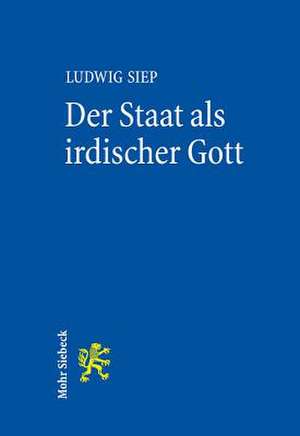Der Staat ALS Irdischer Gott: Genese Und Relevanz Einer Hegelschen Idee
Autor Ludwig Siepde Limba Germană Paperback – 31 iul 2015
Preț: 453.64 lei
Preț vechi: 533.69 lei
-15% Nou
Puncte Express: 680
Preț estimativ în valută:
86.81€ • 90.86$ • 72.25£
86.81€ • 90.86$ • 72.25£
Cartea se retipărește
Doresc să fiu notificat când acest titlu va fi disponibil:
Se trimite...
Preluare comenzi: 021 569.72.76
Specificații
ISBN-13: 9783161538483
ISBN-10: 316153848X
Pagini: 268
Dimensiuni: 146 x 226 x 17 mm
Greutate: 0.43 kg
Editura: Mohr Siebeck
ISBN-10: 316153848X
Pagini: 268
Dimensiuni: 146 x 226 x 17 mm
Greutate: 0.43 kg
Editura: Mohr Siebeck
